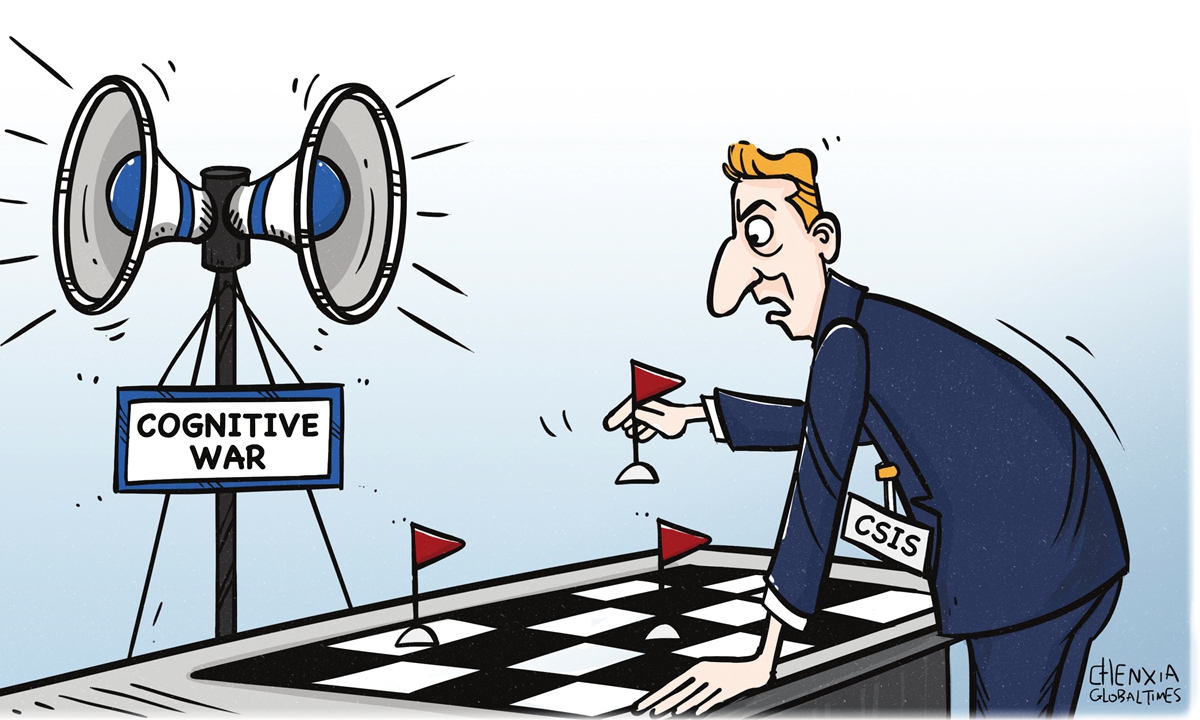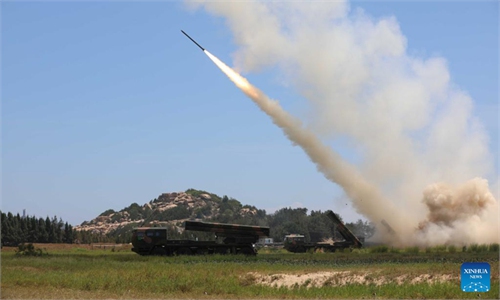CSIS’ war games, designed for cognitive warfare against China, will have little influence

Illustration: Chen Xia/GT
US politicians' provocative visits to Taiwan island, especially the one led by House Speaker Nancy Pelosi, have triggered a new round of escalation of tensions in the Taiwan Straits. Western media is hyping the possibility of a conflict accidentally being sparked. Against this backdrop, not only the US military, but also private think tanks have been focusing on research and predictions on regional military situations and war scenarios.
Recently, the Center for Strategic and International Studies (CSIS), a US think tank, has conducted scenario planning for a possible war in the Taiwan Straits. In terms of such war games, unlike those carried out by officials and military, which tries to provide sufficient conditions to pursue secret simulations that are close to reality, the public simulations of private think tanks have a clear purpose: to express their established academic views and find reasons through military simulation, they always need to limit conditions, manipulate the simulation process and come to the conclusions they already held.
This kind of simulation often serves the purpose of cognitive warfare and plays a strong role in targeted propaganda and building public opinion. Some also aim at directly serving the real political needs and they help express the interests or needs of the government. Take the simulation of CSIS, it is more likely to be an "academic" expression of a think tank that cooperates with the US official and China to conduct public opinion war and psychological war.
The simulation assumes that the Chinese mainland decides to attack Taiwan island in 2026, one year before the centennial of the founding of the Chinese People's Liberation Army (PLA), and in the simulation, the US and Japan decide to implement military intervention. The purpose of this presupposition may be displaying the US' judgment of China's possible military operations toward Taiwan island and the US' so-called determination in intervention in the Taiwan question together with its important regional partners.
In the simulation, the two sides headed by China and the US invested in various weapons except nuclear weapons to compete. This shows that the US society tends to limit possible interventions within conventional regional warfare, avoiding the risk of nuclear weapons and preventing the war from losing control. The simulation started with a hypothetical scenario that was unfavorable to the US, and then as the conflict continued, the PLA suffered heavy losses in equipment and personnel, and the advantages of the US and Japan started to emerge.
During the simulation, the US military bombed multiple ports in China, resulting in a serious failure of the PLA's landing operations. Obviously, this setting of expanding the scope of US military strikes to the Chinese mainland, which could cause heavy casualties to the PLA, implies deterrence and blackmail against China.
On the one hand, the organizer of the simulation came to the conclusion that "The results are showing that under most - though not all - scenarios, Taiwan can repel an invasion," trying to warn China not to rashly launch a military operation to reunite Taiwan. On the other hand, the war will inevitably lead to an impact on US global influence. This shows that the US is worried that a possible conflict in the Taiwan Straits may lead to a lose-lose situation between China and the US. The US has the need and tools to promote political settlement of regional crises through peaceful means.
At present, the US is launching an unprecedented multi-domain offensive against China, and cognitive warfare runs through it. The US has a huge media, network and information platform, and its ability of news dissemination and public opinion influence is strong enough. Naturally, non-governmental think tanks can also exert their so-called academic influence, becoming a tool of the US' cognitive warfare effort.
But such influence is limited. The first reason is the participation of laymen, unprofessional simulations, and the setting of background conditions makes the process lack a pure scientific method. The second reason is the subjective tendency of preconceived conclusions, which is seriously inconsistent with objective reality. The third reason is that due to the political guidance of the US government, as well as the long-term pursuit of hot topics, exaggeration and confusion of right and wrong, some think tanks are full of flaws on China-related research.
The author is professor at the National Defense University. opinion@globaltimes.com.cn

